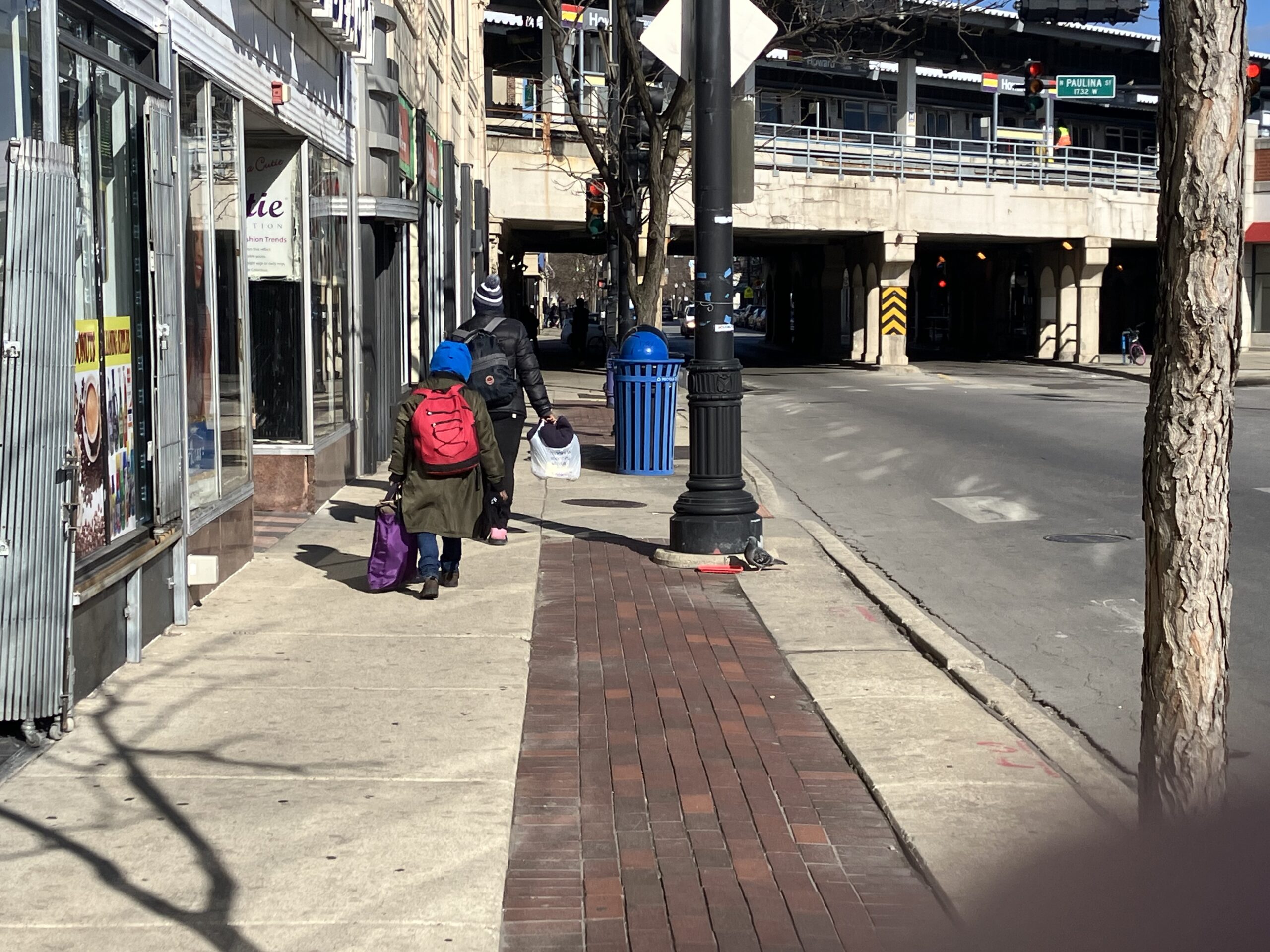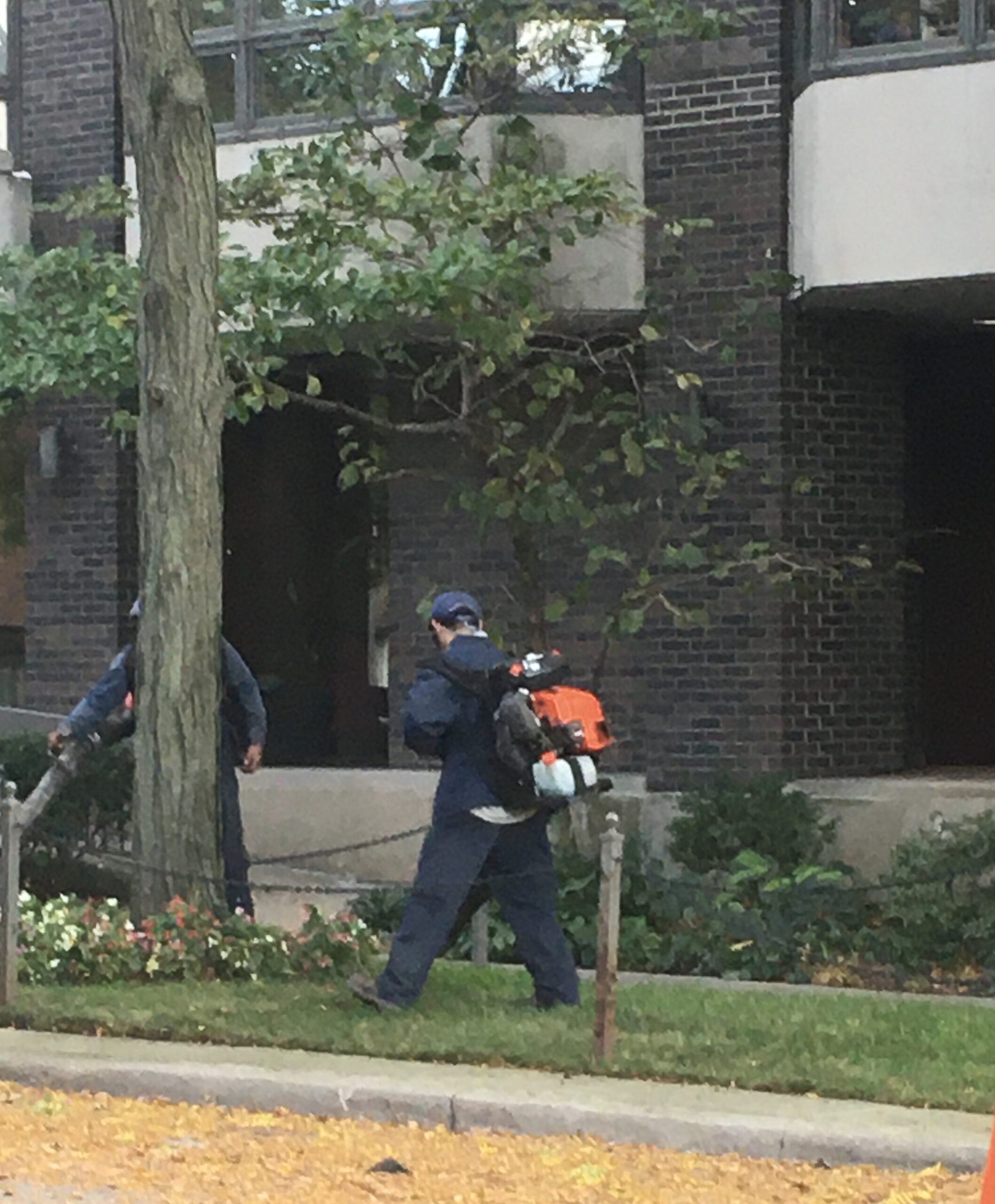By Bob Seidenberg
rseiden914@gmail.com
Evanston City Council members at their November 1 meeting deferred acting on a request for $1 million in federal American Recovery Plan Act funds from local entrepreneurs to create The Aux, a commercial hub for Black business groups.
Several council members praised the uniqueness of The Aux’s plan to transform the vacant E.Z. Spuds property at 2223 Washington Street but said they needed a fuller picture of the requests now lining up before them.
“This shouldn’t be just a first-come, first-served,” said Fourth Ward Council member Jonathan Nieuwsma during the discussion. He said he is fully in support of the concept behind The Aux.
Started by a group of entrepreneurs, The Aux is a planned business incubator for Black-owned businesses – some already established and others getting ready to launch.
The name “Aux” is derived from the auxiliary jack on a sound system, wrote Kristin Brown in the September 30 RoundTable, and refers to “plugging in and inspiring change,” using a business model in which tenants work together, share resources and support each other. Most of the businesses have a focus on wellness, she wrote.
The Aux’s proposal
The $1 million sought from the ARPA-Economic Development fund would be used to assist with the adaptive reuse of the vacant industrial building to deliver the estimated $7 million project, reported Paul Zalmezak, the City’s Economic Development Manager, in a memo.
The Aux team “believes the City’s investment will leverage additional investment from other public and private sources,” wrote Zalmezak. “Funding will also expedite the project which has an early 2022 construction start and late 2022 opening.”
The Growing Season, an Illinois organization, serve as The Aux’s nonprofit developer, providing initial financial support. Once the project is complete, ownership would be transferred to local community equity investors, and ongoing support would not be needed, Zalmezak noted.
‘A move away’ from the traditional system
Introducing the proposal at the November 1 council meeting, Council member Peter Braithwaite, in whose Second Ward the site is located, distinguished this proposal from other requests for funding that come before the council.
With The Aux proposal, he said, “We have a group that has gone through that economic process with a very unique concept that we’ve never seen before and that is a move away from the traditional banks that have created the barriers that have stalled our progress in life and businesses – and switch to a different model that involves a lot of fundraising and philanthropy.”
Other council members did not disagree but talked about wanting a fuller picture of requests for ARPA money before voting on a single request.
The Aux plans to bring together Black-owned businesses that are dedicated to community wellness. (Nia Architects rendering)
The City of Evanston learned earlier this year this year it would receive approximately $43.1 million under the American Rescue Plan Act intended to assist in COVID-19 recovery. Half of the amount, roughly $21.6 million, was deposited into a special City account in May.
All the money must be either spent or obligated by Dec. 31, 2024, according to the terms of the act.
The City Council has approved spending $5.5 million on public works projects, including $3 million for the water system, and nearly $1 million in parking system improvements.
Adding other items such as streetscape work and community health brings the city close to $9 million in ARPA funds approved or under consideration, according to one estimate at the November 1 meeting.
Meanwhile on the business front, a number of groups are seeking support, including Northlight Theatre, which is asking for $2 million assistance in its move into new quarters downtown.
Of The Aux request, Ninth Ward Council member Cicely Fleming said she would not be voting because she is related to one of the owners in the project.
But commenting on the proposal she told council members, “I do think there’s the chance for us to kind of put our money where our mouth is,” and that, in a city “in which we proclaim to be doing reparations and other things,” The Aux proposal is “a very tangible effort.”
She also addressed concerns that were also raised at the October 27 Economic Development Committee meeting about white people’s backing of the project. EDC members unanimously recommended in favor of the project.
“I will let folks [from The Aux] speak for themselves when we ask those questions,” she said. “But I would just say, historically, African American people haven’t had access to capital. And so a lot of times when businesses are started, they are [started] with loans or they are fronted by white people who have capital.
“That’s how my mother started her first business. Thankfully, she was able to do that,” she said. “But I think we should not hold that against folks who are trying to start a business based on the capital that they have available to them.”
A large chunk of money
Other council members spoke positively about the proposal but supported a move to refer the issue back to the Economic Development Committee until such time as it comes to a vote.
Nieuwsma said, “I’m fully supportive of the concept and, you know, whatever dollar amount the council decides. But as I said before, I’m not comfortable making that vote tonight. I don’t think we should be allocating money, certainly from an economic development bucket, until we have the complete picture in front of us, and we’re able to evaluate this proposal, which I like and support, in the context of other proposals as well.”
Council member Melissa Wynne, 3rd Ward, said she agreed with Braithwaite that the Aux proposal represents a different approach.
“I think this is a really exciting opportunity,” she said, “but I do want to understand it better before I vote on it. I think a million dollars is a large chunk of the money. I want to make sure, as Council member Nieuwsma was saying, that we understand what are the choices we are making by supporting this and in this amount.”
She and other council members supported a suggestion made by Mayor Daniel Biss to refer the issue back to the EDC rather than set action for a specific date, “just to have a place for it,” explained Mayor Biss, “to make sure that when it comes back to here, we’re actually ready.”
On a vote of 8-0, with Fleming abstaining, the item was referred back to the Economic Development Committee.



